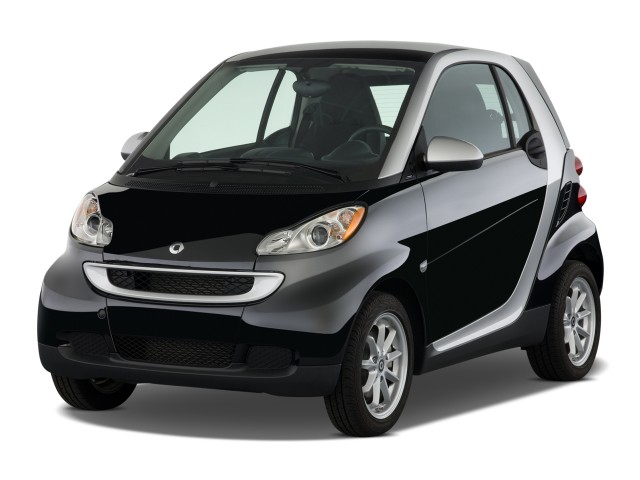
2010 Smart fortwo Passion Coupe
This morning's deal bringing Daimler AG into the Renault-Nissan alliance has lots of interesting details--but first and foremost, it could be what Smart needs to survive in the long term.
Today in Brussels, the CEOs of the companies involved--Renault-Nissan's Carlos Ghosn and Daimler AG's Dieter Zetsche--inked a deal that will trade stakes in the companies and will lead to parts sharing and joint product planning. As a part of the deal Daimler will own 3 percent of each of the other two companies, while Renault and Nissan will hold 1.5 percent each in Daimler (since Daimler's market capitalization is much higher than the others).
Also mentioned in the official press release are a few nascent future product plans. The companies will join for battery-building for future unspecified electric cars and hybrid cars. Renault will provide Daimler with three- and four-cylinder gas and diesel engines for use across its lineup in "future Mercedes-Benz premium compact vehicles," and Infiniti will get four- and six-cylinder gas and diesel engines from by Mercedes-Benz.

Renault-Nissan CEO Carlos Ghosn and Daimler AG CEO Dieter Zetsche
However, it's Smart that benefits from the deal explicitly. In the paperwork, the three companies say they'll join to produce a new four-door Smart model in a factory in Slovenia, while the two-door Smart stays in production in its factory in Hambach, France. The new architecture will be shared with the replacement for the Renault Twingo, and all versions will share a rear-drive platform. Production is expected to begin in 2013. Electric drive is being planned in from the start.
Smart's been down this road before. The brand itself was a joint-venture with the makers of the Swiss watch company Swatch; they were later bought out, and Mercedes has toiled for more than a decade to turn Smart profitable. In the early 2000s it planned and sold a ForFour model with Mitsubishi, and sold it in Europe. The vehicle never made it to the U.S. market as Daimler dithered over American sales of any Smart cars. While Smart avoided the four-seat market, competitors filled the space with cars priced at less than $10,000--cars much larger than the parking-spot-friendly Smart, but with much more interior space and a higher level of safety gear and features.
Smart has struggled in selling its two-door city-car ForTwo here in the U.S. A clever launch involving $99 pre-orders on the Web has withered, and Smart sales are lagging as more economical four-seat cars from Hyundai, Kia and Nissan have been introduced or revamped. Last year Smart sold 14,600 ForTwo cars, off 41 percent from the year before and well off the initial target of around 25,000 sales a year in the U.S. To help fix the sales problem, former Saturn brand chief Jill Lajdziak was installed as Smart USA's sales chief, after the GM brand closed down last year.
Today, a Smart ForTwo carries a lease deal of $169 a month and up to $3000 in rebates. Will it be able to hang on until a four-door model suited to American tastes arrives? With the wide-ranging alliance, Daimler and Renault seem to be betting heavily on a brighter future for Smart USA.













